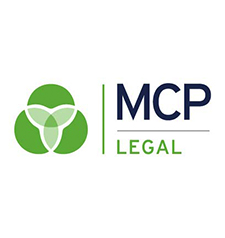
Preparing to sell your property? This article considers what is required from a legal standpoint.
Before a property can be sold, the seller must provide the buyer with a Vendor’s Statement (also called a Section 32 statement).
The vendor’s statement is prepared by the vendor, the vendor’s solicitor or conveyancer, in advance of the sale or auction. It is made available to prospective buyers.
The statement contains information about the land. However, it does not contain information about things such as the quality and condition of buildings and appliances, the conformity of buildings with building regulations and so on.
The buyer is responsible for verifying the information contained in the statement and to discover any information not included.
The vendor must provide the information identified in section 32 of the Sale of Land Act 1962 either in the text of the statement or through the addition of authorised certificates.
The statement must be carefully prepared as the purchaser can avoid the contract if the material is incomplete or inaccurate. If a dispute about the information arises, and the purchaser attempts to avoid, the vendor may challenge this in court. The court will prevent the avoidance if satisfied that firstly, the vendor acted honestly and reasonably and ought to fairly be excused for the wrong information, and secondly, that the buyer is in substantially as good a position as if all the information had been provided.
The vendor’s statement must contain the following details:
If the land is sold under a terms contract (a contract requiring four or more periodic payments) or is sold subject to a mortgage not discharged by settlement, additional information is required.
In a terms sale, this includes the amount of the price which will be required as final payment, assuming payments are made when the contract specifies, details of any mortgages that will not be paid out of the settlement, and the seller’s defaults on the loans.
The vendor’s statement must include a recent search of the title held at the Land Registry.
If the land has a general law title, a copy of the document by which the vendor acquired the land should be included.
Before land can be sold it must be a saleable parcel identified in the Sale of Land Act 1962, section 8A. Usually a saleable parcel is land in a registered title which is a lot on a plan or an allotment or portion in a Crown survey.
Registered titles are identified by volume folio numbers. Usually only one parcel of land or lot is in a title, but some titles can include a number of parcels or lots. Land in a title is often identified by a plan reference, usually lot and plan of subdivision numbers. Some older titles refer to parish plans, Crown portions and allotments.
If the land is general law, the title reference is to the book and memorial numbers which records the last transaction.
The Vendor’s Statement must include copies of the original title and plan registered at the Land Registry. If the land is in process of being subdivided, the statement should include a copy of the proposed plan.
The vendor ensures that telephone, gas, water, cable television and other service accounts are disconnected and billed up to settlement date. The purchaser ensures that the services he or she requires are connected at the appropriate date.
For more information, contact:
e: lawyers@mcpgroup.com.au
p: (03) 9620 2001
w: www.mcplegal.com.au